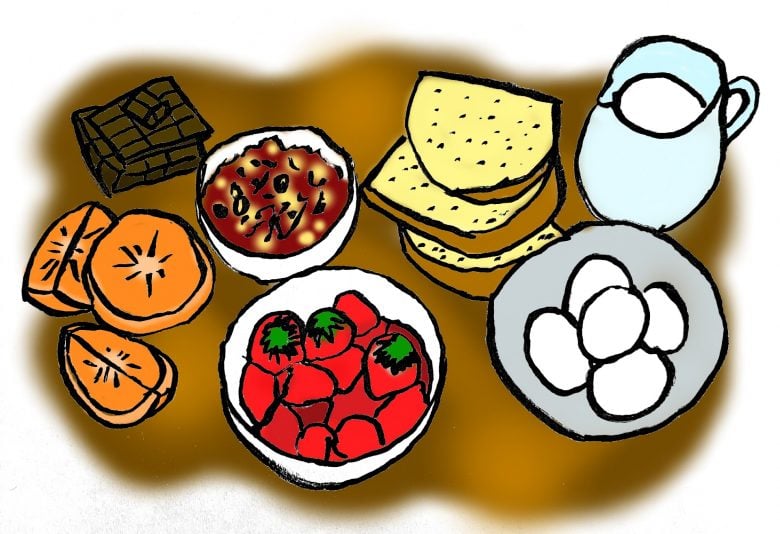
Dealing with allergies in Japan
A stay in Japan is very much an adventure, especially for first time travelers. Many aspects such as attending a study program, working for a national company, completing an internship at an institution or simply traveling shall show different aspects of life in Japan and the Japanese culture.
However, one of the many reasons why people decide to spend either a long term stay or a short term stay in Tokyo or Kyoto, is the unique delicacies of the Japanese cuisine. And there’s no better way to enjoy the local culinary delights than to go visiting restaurants, bars and cafe.

Eating out can be an entire adventure on itself, but it is best to do so safely. If you have any allergy or medical related issues that need to be taken into account, it is best to inform the restaurant staff accordingly to avoid any potential health problems later on.
Here are a few phrases and words you may find useful to enjoy your meal without worries.
私はアレルギーがあります。
(Watashi wa arerugi ga arimasu)
I have an allergy.
⇧
This phrase shall let them be aware of what you shall be mentioning next.
申し訳ありませんが…
(Mōshiwake arimasen ga…)
I am sorry but…
⇧
Since the shop/restaurant may need to make changes to their regular menu for you, it is nice to show politeness. Follow the above phrase with any of the ones below.
…が一切食べられません。
(…ga issai taberaremasen)
I can not eat any …
⇧
Insert any of the below food products in the “…” section of the above phrase to inform what you are unable to eat.
魚介類 (Gyokairui)・Seafood
貝類 (Kairui)・Shellfish
甲殻類 (Kōkakurui)・Crustaceans
エビ (Ebi)・Shrimp
カニ (Kani)・Crab
肉類 (Nikurui)・Meat products
牛肉 (Gyūniku)・Beef
豚肉 (Butaniku)・Pork
鶏肉 (Toriniku)・Chicken
卵 (Tamago)・Eggs
魚類 (Gyorui)・Fish
落花生/ピーナツ (Rakkasē/Piinatsu)・Peanuts
くるみ (Kurumi)・Walnuts
カシューナッツ (Kashūnattsu)・Cashew nuts
ナッツ (Nattsu)・Nuts
乳製品 (Nyuseihin)・Dairy products
麦 (Mugi)・Wheat
そば (Soba)・Buckwheat
大豆 (Daizu)・Soybeans
ごま (Goma)・Sesame seeds
ゼラチン (Zerachin)・Gelatin
辛い物 (Karaimono)・Spicy things
甘味料 (Kanmiryo)・Sweetener
いちご (Ichigo)・Strawberries
りんご (Ringo)・Apple
オレンジ (Orenji)・Orange
もも (Momo)・Peach
キウイフルーツ (Kiwi furūtsu)・Kiwi fruit
For drinks, you may use the phrase below:
…が飲めません。
(…ga nomemasen)
I can not drink…
⇧
Insert any of the below in the “…” section in the above phrase to inform your condition.
酒類/お酒 (Shurui/O sake)・Alcohol
牛乳 (Gyūnyū)・Milk
If you would like to clarify that any of the above products is OK for you to consume, you can simply add them to the “…” section of the phrase below:
⇩
…は大丈夫です。
(…wa daijobu desu)
… is OK.

It is also important to keep be aware of your allergy or food restriction while purchasing products in Japan. Ingredients are written in the back of the products, but its writing may vary from the above words, so make sure you know how to identify your allergies in Japanese.
Alternatively, you can always ask our SAKURA HOUSE staff for help. We like to extend our support to all foreign travelers beyond just accommodation services at our Apartments, Share Houses and Guest Houses. Our goal is to provide everyone with a successful trip and a great amount of unforgettable memories.
SAKURA HOUSE
Nishi-Shinjuku K-1 Bldg. 2F
7-2-6 Nishi-Shinjuku, Shinjuku-Ku Tokyo, Japan
Postal code: 160-0023
Google map
- From Japan:
- 03-5330-5250
- From outside Japan:
- +81-3-5330-5250
- Mail:
- [email protected]
- Office hours:
- 8:50 am to 8:00 pm
We are open every day of the year.
- Tokyo time:
- 11:33(We are open now!)







